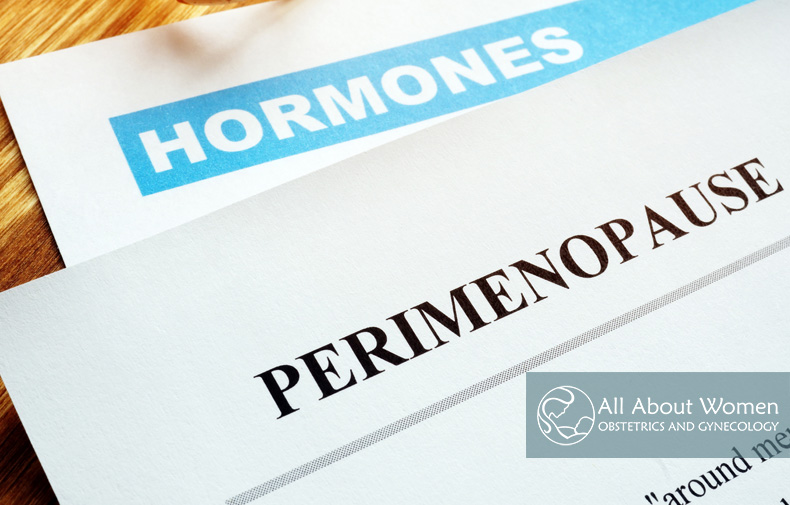
Menopause is the time in a woman’s life when her body stops producing the hormones associated with her menstrual cycle and her fertility ends. Most women, regardless of their age, are familiar with this cycle that the vast majority of women experience at some point in their lives.
However, there is another period prior to menopause that is less known and not well understood by many women.
The transitional period leading up to menopause is known as perimenopause. Perimenopause is characterized by both physical and emotional symptoms, and it can last anywhere from 2 to 10 years.
What is perimenopause?
Perimenopause is the time in a woman’s life when her ovaries start producing less and less estrogen and progesterone. You officially remain in this stage until after you quit having a menstrual cycle for a complete year. Once the year is up, you enter the menopause phase. Perimenopause symbolizes the end of your reproductive years.
Causes and stages of perimenopause
As a woman approaches menopause, the body’s production of estrogen and progesterone begins to fluctuate. The reduction of these 2 chemicals (particularly estrogen) leads to many of the symptoms commonly associated with menopause.
Every woman’s body is different, however. Women as early as their mid-30s can begin to notice some of the changes, but most women begin to notice some kind of menstrual irregularity by their 40s.
That said, there are many Gen X and Millennial women who have begun to experience perimenopause—many who are uninformed (or misinformed) about what’s happening and what it means.
Take, for example, 49-year-old Angie McKaig, who explained to the New York Times how perimenopause has affected her job at Canada’s largest bank. McKaig, who refers to perimenopause-induced brain fog as “peri brain,” reported having such severe brain fog that she would forget a point she was trying to make in the middle of her sentence during a presentation to colleagues.
At first, McKaig worried she might have early-onset Alzheimer’s or that her symptoms were caused by the grief she was experiencing from her mother’s recent death.
She described it “like somebody had taken my brain and done the Etch A Sketch thing.”
Since being diagnosed with perimenopause, McKaig has made it her mission to be open about her “peri brain” with her work colleagues in order to help normalize this natural, but little understood, phase in a woman’s life.
Common signs and symptoms of perimenopause
Given that during perimenopause a woman’s body is moving toward the end of her reproductive life, it’s understandable that her body would be going through changes. Some changes are subtle while others are dramatic.
While every woman is different, some of the most common perimenopause symptoms are hot flashes and irregular periods. As ovulation becomes more irregular, your body can fluctuate the amount of time between periods. The length can vary from shorter or longer than your usual cycle. Your flow can fluctuate as well.
Additionally, you could experience:
- Changing cholesterol levels
- Changes in sexual function
- Concentration problems
- Decreasing fertility
- Headaches
- Joint and muscle aches
- Loss of bone
- Mood changes
- PMS-like symptoms
- Sleep problems, especially difficulty falling asleep or staying asleep
- Vaginal and bladder problems, including vaginal dryness, urine leakage, and urinary urgency
Risk factors for early perimenopause
Even though menopause is a completely normal phase in a woman’s life, there are certain risk factors that make a woman more likely to begin menopause (and thus, perimenopause) earlier than others. These risk factors include:
- Smoking. Women who smoke can experience the onset of menopause up to 2 years before those who don’t smoke.
- Family history. If your mother began menopause early, there’s a higher chance that you will also experience menopause earlier than “normal.”
- Cancer treatment. Women who have cancer that requires chemotherapy or pelvic radiation treatment have been known to experience menopause earlier than others.
- Hysterectomy. When a woman has a hysterectomy, her uterus is removed, but the ovaries remain to continue to produce estrogen. That said, having a hysterectomy can lead to early-onset menopause.
Is there anything that can help me get through this phase of my life?
Not all women will experience severe symptoms but some will and it can greatly affect their life. There are medications that can help with some of the symptoms. Some of the options to control hot flashes are progesterone injections, a vaginal ring, or skin patches.
Even with all the changes that are occurring during the process of your body moving into perimenopause (and later menopause), this part of your life doesn’t have to become your whole life.


